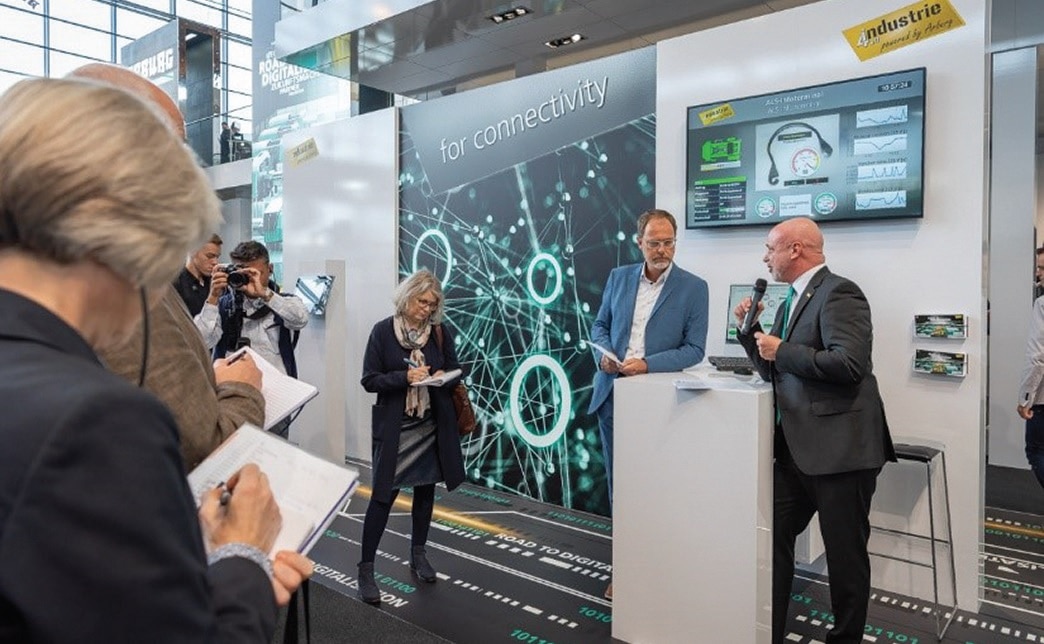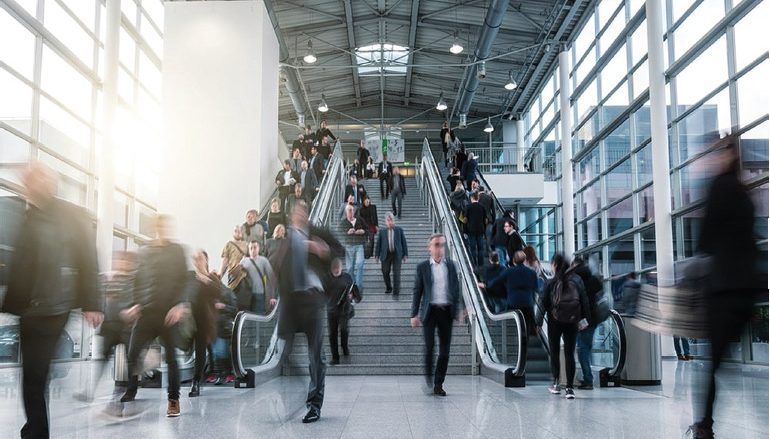The notion of Circular Economy has a long history in the plastics industry. There is no question of “if”, but of “how”. How can we increase the amount of plastic in the circuit so that it does not lose its value as a valuable resource?
From change to the everyday opportunity of Circular Economy
During the VDMA press tour at the international trade fair for plastics processing, Fakuma, representatives of KraussMaffei, ARBURG, ALIPLAST / Plastics Recyclers Europe PRE, Motan, Sumitomo (SHI) Demag and ENGEL share their experiences and discuss the identified challenges regarding the implementation of Circular Economy.
Strengthen interconnection and cooperation within the value chain
Thorsten Kühmann, General Manager of VDMA Plastics and Rubber Machinery, is convinced that: “The Circular Economy has reached the machines construction. We take responsibility and we can make an important contribution as mechanical engineers. We believe it is very important that the partners of circular economy have the chance to get better acquainted with and deepen the understanding of their interests and needs, as well as the opportunities and limits of some. We believe it is an important task for our association to provide a platform for this and also to bring together the participants. ”
Dr. Frank Stieler, KraussMaffei’s Executive Director, has a similar position: “In order to establish a circular economy in the field of plastics, it is fundamental to have a good collaboration and close coordination between partners. KraussMaffei is already collaborating with other machinery manufacturers, for example, with the equipment manufacturer and recycling expert in Austria, Erema.”
The fact that the assumption of responsibility for sustainable thinking and action, as well as profitable business models are not excluded from each other is also recognized by VDMA members. Stieler admits: “The KraussMaffei Group promotes the responsible treatment of plastics. The establishment of a circular economy in the field of plastics has, therefore, an important role. Besides ecological responsibilities, we also identify economic opportunities. ”
Reliable qualities and quantities of recycled materials increase acceptance on the market
However, economic opportunities do not come out of the blue. Acceptance by processors, by large names in the field and by end-users of recycled products and products made from recycled products is central to the success of a circular economy – also in an international context.

Dr. Christoph Schumacher, Head of Marketing and Corporate Communication Services at ARBURG GmbH + CO KG offers a comprehensive approach to the subject: “The time has come to focus our attention on what is best solution to integrate plastic products – taking into account the economic, technological and environmental aspects – in a globally structured circular economy as good as possible. ”

For processors to increasingly use recycled materials for the manufacture of plastic products, they need materials to have reliable qualities in sufficient quantities. These can only be obtained if a sufficient quantity of recyclable plastic waste can be collected. The key to increasing recycling rates is designing the product in the sense of “design for recycling” as well as better waste management at EU level. Paulo Glerean, Business Development & Institutional Affairs at ALIPLAST, Italy, member of the Plastics Recyclers Europe (PRE) committee, supports the efforts to improve plastic recycling in Europe: “It is important to underline that the efforts of all actors in the value chain, including consumers, must focus on improving the different stages of plastics manufacture, use phase and disposal. Only in this way we can obtain an efficient waste management for plastics and finally make them completely circular. PRE is committed to continuously supporting various industries, improving product recycling and accelerating the transition to the circular economy through its platforms like RecyClass. ”
Car Engineering, Mediator – Digitization, an important factor in sustaining the Circulation Economy
What can the automotive industry do? “We are the mediators, this is our current business model,” Schumacher said briefly. Transforming market challenges into innovative technological solutions is the experience of manufacturers of plastic and rubber machinery for decades – as is the case for the Arburg molding machine manufacturer.
The Material Handling Wizard, Motan, uses the digitalization of its installations to meet the special requirements resulting from the transported goods produced by plastics recycling: “The physical qualities of recycled materials are never as good as those of new materials. This means that the processes of handling these materials are more complex if it is desired to preserve the quality of the final product. Here, Industry 4.0 can perfectly support Circular Economy. The various technologies under the umbrella Industry 4.0 are the main tool for implementing the circular economy strategy. At the same time, such a contribution to the circular economy business model ensures Industry 4.0 is developing a goal and a direction,” says Sandra Füllsack, Managing Director of Motan Holding GmbH.

Industry 4.0 prepares the way for Circular Economy in the Plastics Industry. The growing intelligence of injection molding machines allows stable processes even if quality differs. Consequently, recycled materials can be used on a larger scale, “said Dr. Christoph Steger, CSO, ENGEL Holding.
Engel, as a member of the international plastics industry, feels responsible for sustaining Circular Economics and contributing with its experience in developing sustainable, resource-accessible technologies.

Demand for Circular Economy projects is also significant in Asian markets
Growing demands for sustainability and circular economic patterns are also visible in global markets, for example in Asia. Gerd Liebig, Executive Director Sumitomo (SHI) Demag GmbH, confirms: “Our Asian customers are increasingly focusing on the use of recyclable materials. New materials, such as biopolymers, are used on a larger scale. It also tries to find solutions to reduce the amount of crushed plastics and materials used, as well as to reduce energy consumption. ”

Liebig also said: “However, marine pollution with micro-plastic materials is a reason to introduce stricter rules on plastics recycling in the Asian region. Water pollution dramatically reduces fish populations and thus has a direct impact on the food industry, more specifically on fish supplies, which, especially in Japan, is part of the main food sources. “
Categories
- No categories
Archives
Useful links
Media galleries
Categories
- No categories



